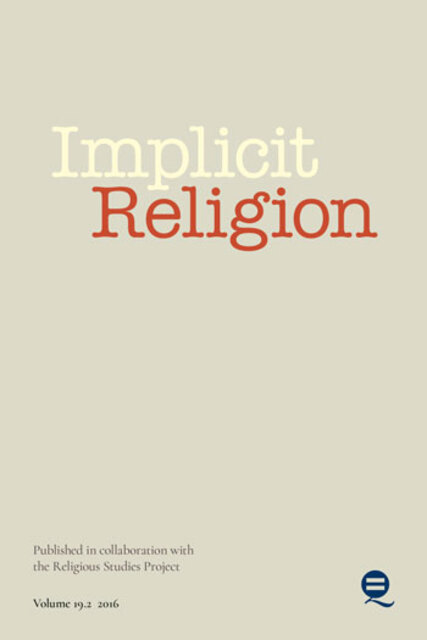Allowing Belief; Performativity, Marjorie Taylor Greene, and the Governance of Belief Claims

Full description
Following the events at the United States Capitol on January 6, 2021 where a protest led to the later-termed armed insurrection, congresswoman Marjorie Taylor Greene (R) was removed from her committee assignments for the role she played and her beliefs in QAnon. Greene’s passive language in her apology about being “allowed to believe things that weren’t true” landed, for her critics, as a disingenuous attempt to absolve herself of any blame. From a scholarly standpoint, however, her remarks provide a particularly useful case study for an examination of how the modern discourse on belief works. We normally talk about beliefs not as something one is “allowed” to have, rather as something an individual internally has and then only later expresses. Greene’s comments, though, point toward a rather different understanding of how beliefs—or better, belief claims—function than many might realize. This article uses two specific parts of Greene’s comments to reframe how we understand belief and suggests that we adopt a performative theory of belief, studying belief as a socio-rhetorical tool used to create and maintain a strategically useful but fictive internal space that functions as a mechanism of governance to manage dissent instead of a set of naturally occurring and internal convictions.
- typeImage
- created on
- file formatjpg
- file size13 KB
- container titleImplicit Religion
- creatorJacob Barrett
- issn1743-1697 (online)
- issue25.1-2
- publisherEquinox Publishing Ltd.
- publisher placeSheffield, United Kingdom
- rightsEquinox Publishing Ltd.
- volume
- doi
We use cookies to analyze our traffic. Please decide if you are willing to accept cookies from our website. You can change this setting anytime in Privacy Settings.
